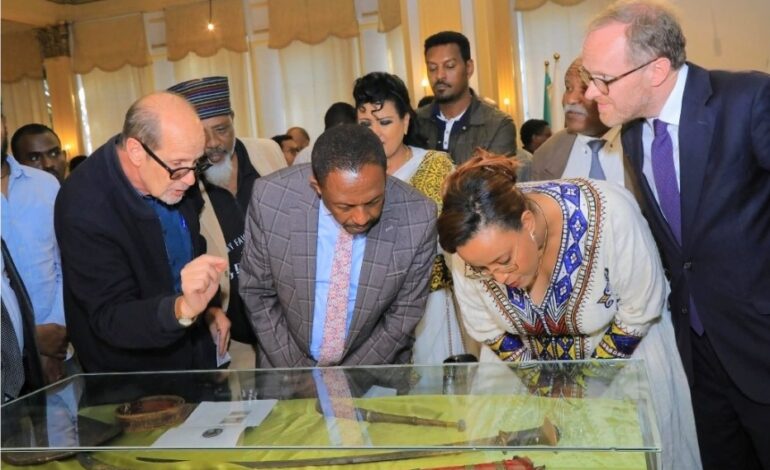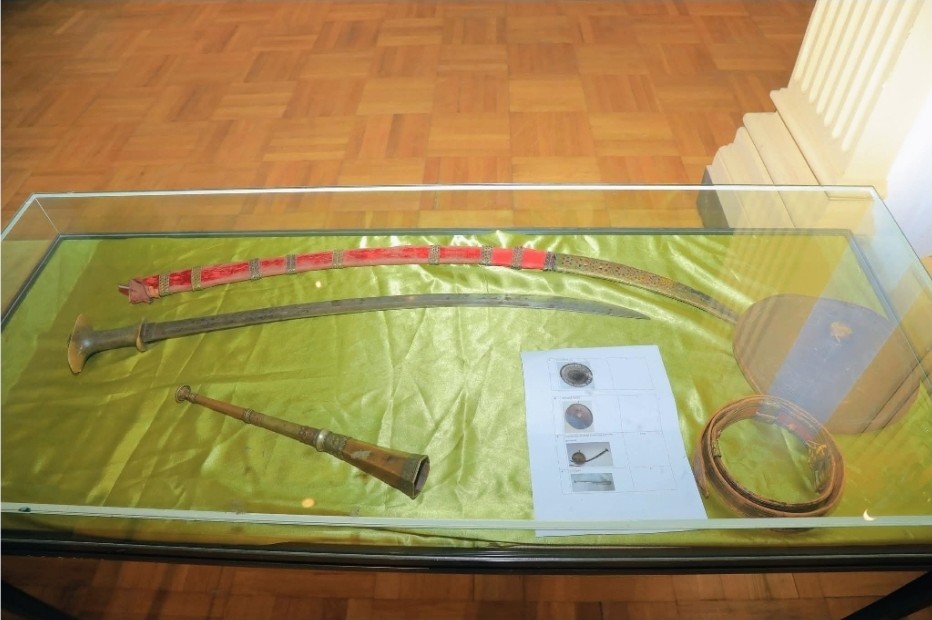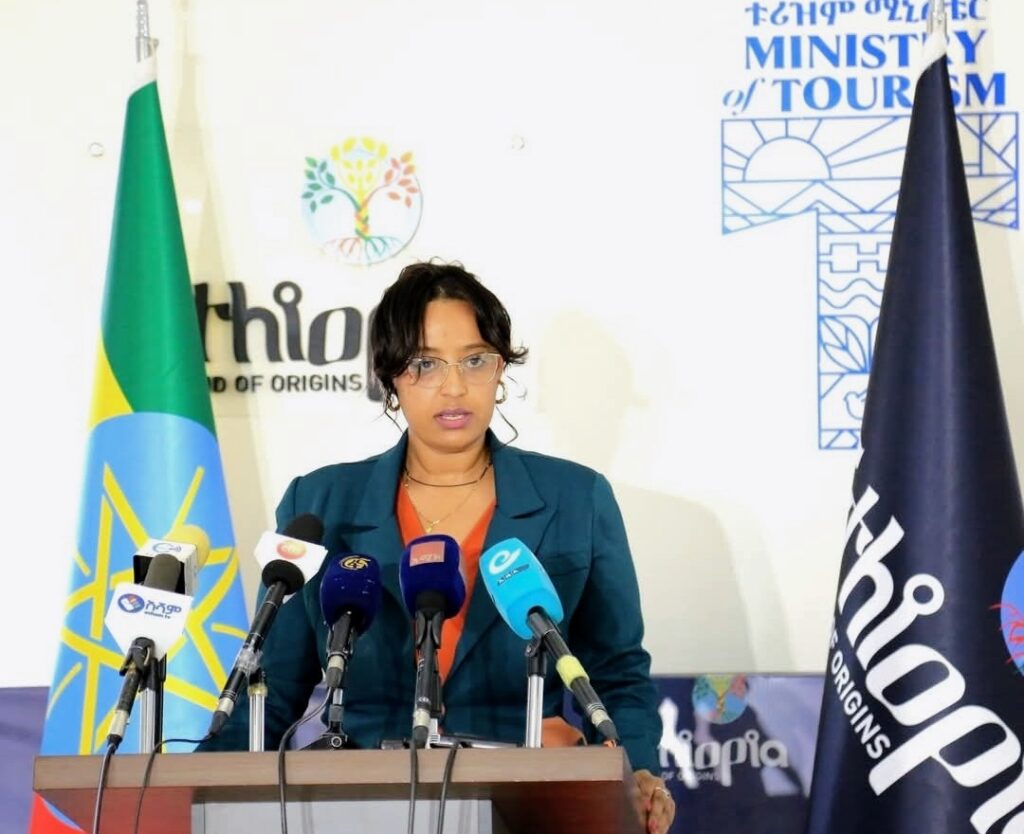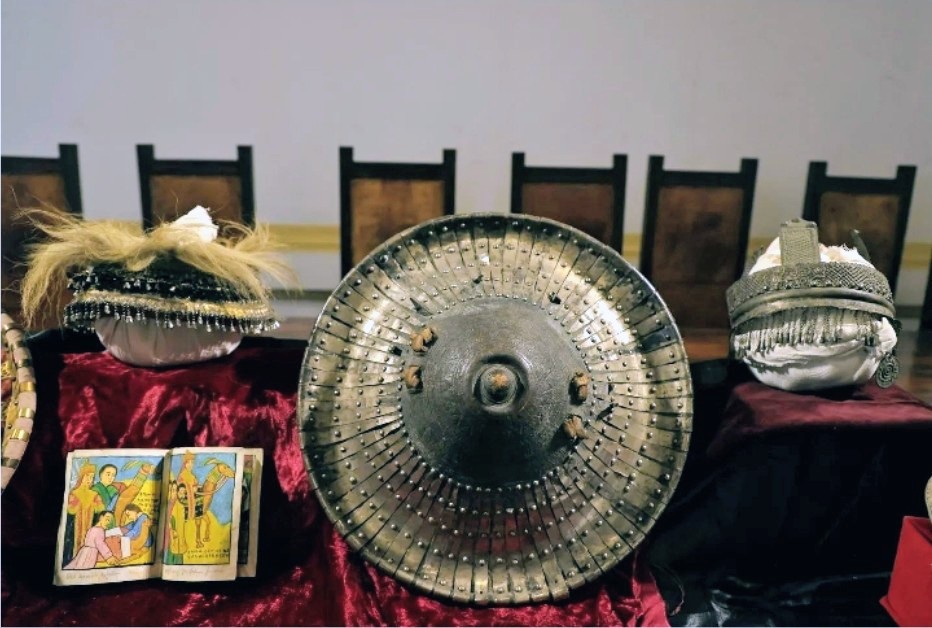
Wayne Lumbasi
After more than 100 years abroad, Ethiopia has successfully reclaimed a collection of historic artefacts from Germany, marking a landmark moment in the preservation of the nation’s cultural heritage. The return of these items, celebrated in a ceremony at Ras Makonnen Hall, Addis Ababa University, symbolizes both historical reconciliation and renewed national pride.
The collection, consisting of twelve artefacts, includes ceremonial crowns, intricately decorated shields, a sword with its belt, traditional headgear, and paintings.

Many of the items were gifts from Regent Tafari Makonnen who later became Emperor Haile Selassie, while others were acquired or commissioned by Franz Weiss, Germany’s envoy to Ethiopia in the 1920s, and his wife Hedwig. These objects, which had left Ethiopia during a period of diplomatic engagement, now offer scholars and the public a tangible link to the nation’s royal and artistic traditions.
Professor Ramon Wyss, grandson of Franz Weiss, personally handed over the artefacts. He described the moment as the fulfillment of a long held family wish to see the collection preserved in its country of origin and shared with the public. “It has always been our hope that these treasures would return to Ethiopia where they belong and continue to tell the stories of its rich culture,” he said.

For Ethiopia, the return of the artefacts carries profound significance. Tourism and culture minister Selamawit Kassa emphasized their value for education, research, and heritage preservation. “These artefacts are not just pieces of history; they are windows into Ethiopia’s artistry, craftsmanship, and royal legacy. Their return strengthens our capacity to preserve and celebrate our cultural identity,” she noted.
The artefacts are now under the custodianship of the Institute of Ethiopian Studies at Addis Ababa University, where they will be made accessible for both study and public exhibition. To complement the repatriation, the Goethe-Institut in Addis Ababa plans an exhibition featuring 51 rare photographs taken by the Weiss family during their time in Ethiopia, offering a visual record of the country in the 1920s.
The repatriation reflects a broader global movement advocating the return of cultural heritage to countries of origin, particularly in Africa. Germany has previously repatriated other artefacts including bronzes to Nigeria, signaling a growing recognition of the importance of restoring cultural property.

Ferdinand von Weyhe, Germany’s Chargé d’Affaires, described the return as a gesture of goodwill, saying, “This is not just about returning objects; it is about respecting history and strengthening the friendship between our nations.”
For Ethiopians, the repatriation is a historic triumph, a restoration of cultural pride, an opportunity for education, and a celebration of a heritage that has endured across centuries and continents.
MORE ON CULTURE HUB
EGYPT REOPENS TOMB OF PHARAOH AMENHOTEP III AFTER 20 YEARS OF RESTORATION
GERMANY RETURNS STOLEN ART WORKS TO NIGERIA
SAINT LUCIA CREOLE HERITAGE MONTH FEATURES MADRAS VERSUS AFRICAN -WEAR








